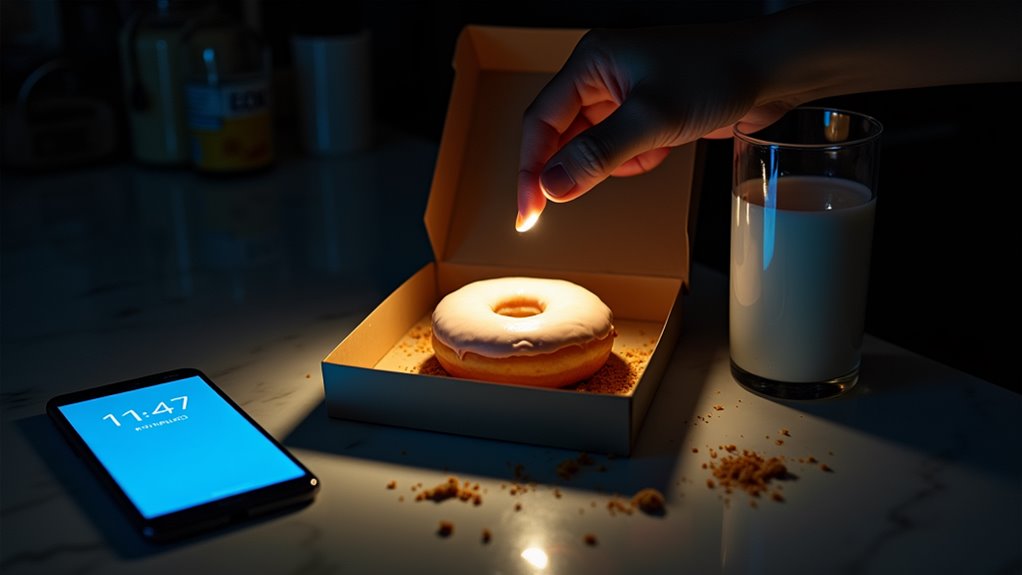Stop Doing This If You Want to Lose Weight – It’s Holding You Back!
You’re working hard to lose weight, but certain habits could be sabotaging your progress without you even realizing it. From seemingly innocent ‘diet’ foods to that midnight snack you can’t resist, these common mistakes might explain why the pounds aren’t coming off. If you’ve been feeling frustrated with your weight loss journey, it’s time to uncover the hidden obstacles that are keeping you from reaching your goals.
Why Eating ‘Diet’ Foods May Be Sabotaging Your Progress
While ‘diet’ labeled foods may seem like smart choices for weight loss, they often contain hidden ingredients that can derail your progress. Many people make common mistakes stopping weight loss by relying too heavily on these products without reading the labels carefully. You’ll find artificial sweeteners, preservatives, and sodium hidden in these seemingly healthy options.
These ‘diet’ products can actually increase your cravings and lead to overeating. When you consume artificial sweeteners, your body expects calories but doesn’t receive them, leading to increased hunger later. You’re also more likely to overindulge because you believe these foods are healthier alternatives.
Additionally, many diet foods lack the fiber and protein that help you feel satisfied. Instead of reaching for diet-labeled items, focus on whole, unprocessed foods. You’ll feel more connected to your food choices and experience better results when you stick to natural ingredients that your body recognizes and processes efficiently. Many protein bars can contain more sugar than a candy bar, undermining weight-loss goals.
The Problem With Late-Night Snacking and How to Stop
Just as choosing the right foods matters, when you eat them can significantly impact your weight loss journey. Late-night snacking is a common habit that can derail your progress, as your metabolism naturally slows down in the evening, making it harder for your body to burn those extra calories.
When you eat late at night, you’re more likely to choose unhealthy comfort foods and exceed your daily caloric needs. Plus, going to bed with a full stomach can disrupt your sleep quality, leading to increased hunger hormones the next day. Additionally, a disrupted metabolism can signal the body to hold onto fat instead of burning it.
To break this habit, try setting a “kitchen closing time” two hours before bed. Keep yourself busy with relaxing activities like reading or taking a bath.
If you’re genuinely hungry, opt for a small protein-rich snack like Greek yogurt or a handful of nuts. Stay hydrated with water or herbal tea, as thirst often masquerades as hunger.
Skipping Meals: A Common Weight Loss Mistake
Many people believe skipping meals will accelerate their weight loss, but this approach often backfires by triggering intense hunger and overeating later in the day. Your body needs consistent fuel to maintain a healthy metabolism and stable blood sugar levels.
| What Happens When You Skip | What You Should Do Instead |
|---|---|
| Metabolism slows down | Eat regular, balanced meals |
| Blood sugar crashes | Space meals 3-4 hours apart |
| Increased cravings | Plan healthy snacks |
When you skip meals, you’re setting yourself up for failure. You’ll likely make poor food choices when hunger strikes, reaching for high-calorie convenience foods rather than nutritious options. Instead of skipping meals, focus on eating smaller, more frequent portions throughout the day. This strategy helps maintain your energy levels and keeps your metabolism running efficiently. Additionally, maintaining a caloric deficit is crucial for effective weight loss. Remember, successful weight loss isn’t about depriving yourself – it’s about creating sustainable eating habits that nourish your body while supporting your goals.
Overcompensating After Exercise: Breaking the Cycle
After completing a challenging workout, you might feel entitled to indulge in extra calories as a reward for your efforts. This common mindset can sabotage your weight loss goals, as you’re likely consuming more calories than you’ve burned during exercise.
Many people overestimate the calories they burn while working out and underestimate the calories they eat afterward. That post-workout smoothie or protein bar might contain more calories than your entire exercise session burned.
Studies show that a typical hour-long workout burns between 200-600 calories, while a restaurant meal can easily exceed 1,000 calories.
Instead of treating exercise as a reason to eat more, focus on fueling your body with proper nutrition. Choose lean proteins, fruits, and vegetables to support muscle recovery. Additionally, it’s crucial to remember that a moderate calorie deficit is essential for sustainable weight loss.
If you’re hungry after working out, stick to a planned, portion-controlled meal rather than spontaneous treats. Remember, sustainable weight loss happens when you maintain a consistent caloric deficit.
Relying Too Much on the Bathroom Scale
While checking your weight daily might seem like a good way to track progress, obsessing over the bathroom scale can lead to unnecessary stress and frustration. Your body weight naturally fluctuates throughout the day due to water retention, food intake, and hormonal changes, making daily weigh-ins unreliable indicators of fat loss.
Instead of fixating on numbers, focus on how your clothes fit and how you feel. Take progress photos every few weeks, measure your body composition, and track your fitness achievements. Many successful weight loss journeys don’t follow a straight downward line on the scale. You’re not alone if you see the numbers go up and down.
Consider weighing yourself just once a week, at the same time and under similar conditions. This approach gives you a more accurate picture of your progress while maintaining your emotional well-being and keeping you motivated on your weight loss journey. Additionally, prioritize getting quality sleep as it plays a crucial role in balancing hormones that affect appetite and cravings.
The Hidden Impact of Stress-Eating on Your Weight Goals
When life becomes overwhelming, turning to food for comfort can sabotage your weight loss goals without you even realizing it. During stressful times, your body releases cortisol, which increases cravings for high-calorie, sugary foods that temporarily make you feel better but ultimately derail your progress.
You’re not alone in this struggle – stress-eating is a common challenge many people face on their weight loss journey. The key is recognizing your emotional eating triggers and developing healthier coping mechanisms. Instead of reaching for that bag of chips when you’re anxious, try going for a walk, calling a friend, or practicing deep breathing exercises.
Keep a food-mood journal to identify patterns between your stress levels and eating habits. When you understand what drives your stress-eating, you’ll be better equipped to make conscious choices that align with your weight loss goals, rather than letting emotions dictate your food decisions.

